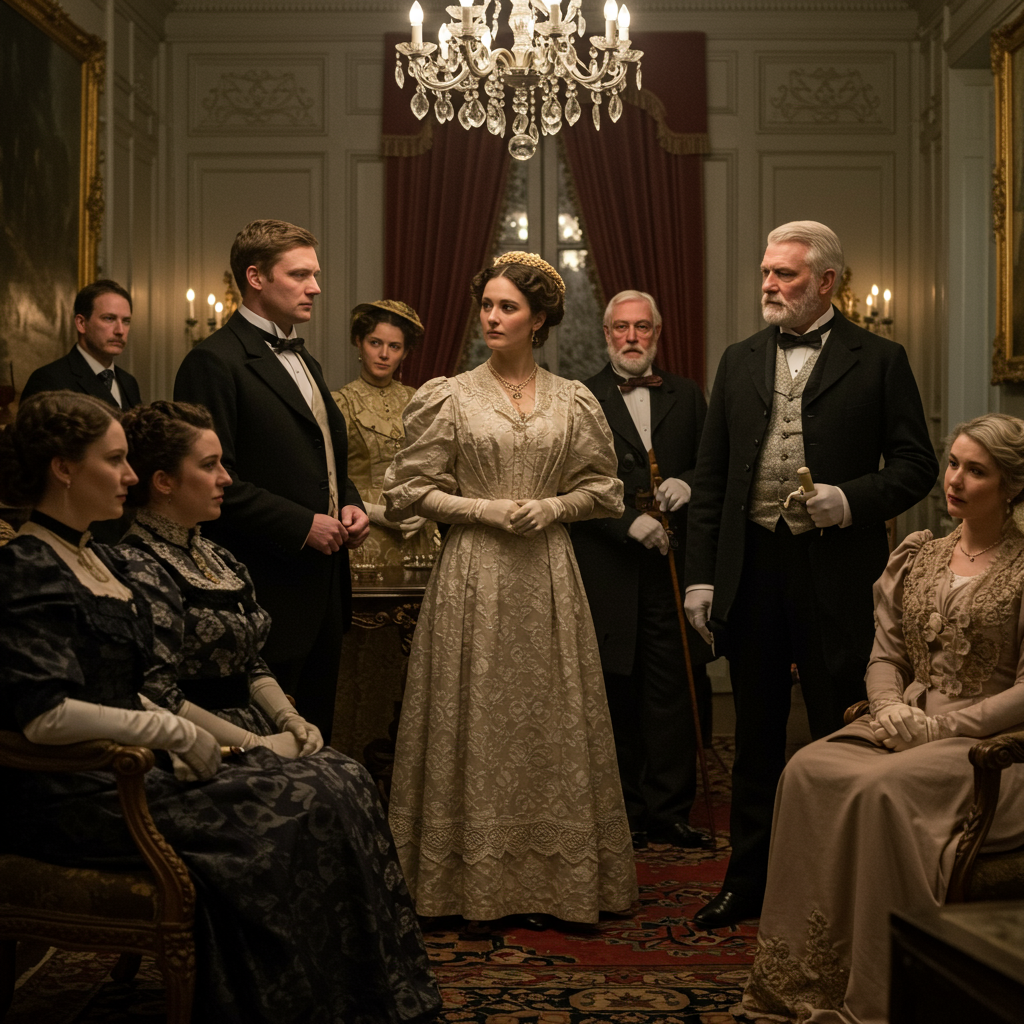Welcome back to the dazzling, dramatic world of 1880s New York! The Gilded Age is officially back for its third season, premiering Sunday, June 22, 2025, at 9 p.m. ET/PT on HBO and streaming on Max. The eight-episode season dives headfirst into turbulent new waters, shaking up the lives of Manhattan’s elite and the determined individuals striving to rise.
The Season 3 premiere, pointedly titled “Who Is in Charge Here?”, immediately sets the stage for major power shifts and brewing conflicts across familiar households. To dissect the episode’s shocking twists and hints of the social climbing ahead, creator Julian Fellowes, co-writer and executive producer Sonja Warfield, and key cast members pulled back the curtain on what awaits viewers.
The Russell Empire Cracks
For two seasons, the formidable union of Bertha (Carrie Coon) and George Russell (Morgan Spector) seemed unbreakable, fueled by their shared ambition to conquer New York society. George amassed their fortune through shrewd business, while Bertha used it to bulldoze through the old money establishment. However, their united front faces its biggest test yet: the future of their daughter, Gladys (Taissa Farmiga).
Bertha, still riding high from her Opera War victory which hinged on a potential promise of Gladys’s hand, is determined to marry her daughter off to the Duke of Buckingham for ultimate social elevation. George, conversely, simply wants Gladys to find happiness, even if it’s with a “non-entity” like Billy Carlton. This fundamental disagreement sparks immediate, “intractable” friction between the couple, a conflict Carrie Coon notes is surprising to see unfold so early in the season.
Morgan Spector highlights that this clash makes it feel like they are “not speaking the same language.” While Bertha’s logic—that marrying the Duke could grant Gladys significant social influence—holds some truth, it’s undeniably intertwined with her own desire for “self-glory.” Similarly, George’s push to revolutionize the railroad industry with a risky cross-country venture isn’t solely for progress; it’s also about cementing his legacy. Both Russells share a potent drive to “dominate their surroundings,” a quality that once bound them but now threatens to pull them apart.
Adding to the strain, George is under immense pressure from his dangerous business endeavors, feeling vulnerable but unable to fully confide in Bertha. This lack of open communication, combined with the conflict over Gladys, begins to isolate Bertha, stripping her of her closest confidante. Though loosely based on the scandalous Vanderbilt divorce, the Russell marriage isn’t “fatal yet,” but “all possibilities are on the table,” according to the cast and creators.
Even George, accustomed to control, finds himself out of his element early on when the season opens not in familiar New York, but in the unexpected setting of the Old West, facing danger he’s unfamiliar with.
Power Shifts in the Brook Household
Across 61st Street, the dynamic between sisters Agnes van Rhijn (Christine Baranski) and Ada Forte (Cynthia Nixon) has been dramatically flipped. Following her husband’s unexpected fortune and Agnes losing hers through her son Oscar’s disastrous investments, Ada is now the wealthy lady of the house.
This reversal of fortune, particularly the older sister (Agnes) becoming financially dependent on the younger (Ada), was a key dynamic the writers were eager to explore. Cynthia Nixon describes Ada as “90% heart and 10% brain,” a woman-child who, having been sheltered her whole life, is now stumbling blindly through her newfound wealth and responsibility.
Ada throws herself into philanthropy, backing settlement houses and, much to Agnes’s horror, the temperance movement. Ada sees women suffering from husbands’ drinking and spending, believing alcohol is the root evil. Agnes, however, is more intuitive; she recognizes the real problem is women’s lack of power and believes women’s suffrage is the critical fight.
While Agnes might seem like a snob, Christine Baranski argues she simply has “standards” and is convinced she’s right. Agnes is surprisingly progressive on issues like race and suffrage, constantly reading newspapers and engaging with the times, yet remains traditional regarding social hierarchy. Despite her own “fall from grace” and needing to adapt to dependence on Ada, Agnes’s sharp wit and protective instincts towards her sister promise moments of both tension and humor.
New Challenges and Societal Changes
The premiere also introduces other significant plotlines reflecting the era’s rapid social evolution:
Peggy Scott’s Path: Peggy (Denée Benton) continues pursuing her writing career with interest from publishers. However, a serious illness leads to a distressing encounter with a racist doctor, a difficult event that unexpectedly brings a new romantic interest, Dr. William Kirkland (Jordan Donica), into her life. Their relationship will delve into themes of colorism and differing views on suffrage within the Black community, influenced by his mother (Phylicia Rashad). Peggy will also navigate the challenges of her career conflicting with the expectations of her potential love interest’s Newport family.
Social Mobility: Jack the footman (Ben Ahlers), successful with his alarm clock patent and now in business with Larry Russell (Harry Richardson), embodies the Gilded Age ideal that in America, you don’t have to live like your parents. Julian Fellowes notes this was true to an extent compared to Europe, allowing individuals from humble origins to amass fortunes, though unlimited upward mobility remained rare. The focus on wealth as a determinant of social standing remains relevant today.
- The Rise of Divorce: A major theme this season is divorce, introduced prominently through Aurora Fane’s (Kelli O’Hara) husband leaving her for adultery (the only legal grounds at the time). Fellowes highlights how society’s rigid restrictions on divorce were starting to weaken, exploring the complex etiquette and prejudices faced by those impacted. Sonja Warfield shared a personal anecdote illustrating how even today, divorce can lead to social ostracization. The storyline prompts questions about marital compromise versus seeking personal fulfillment.
- variety.com
- www.tvinsider.com
- www.usatoday.com
- ca.news.yahoo.com
- www.radiotimes.com
As New York hurtles towards the future, driven by the relentless ambitions of its inhabitants, the season’s tagline rings true: “Love conquers all, or costs everything.” Viewers can anticipate a season rich with historical context, character conflict, and the high stakes of a society in flux.


